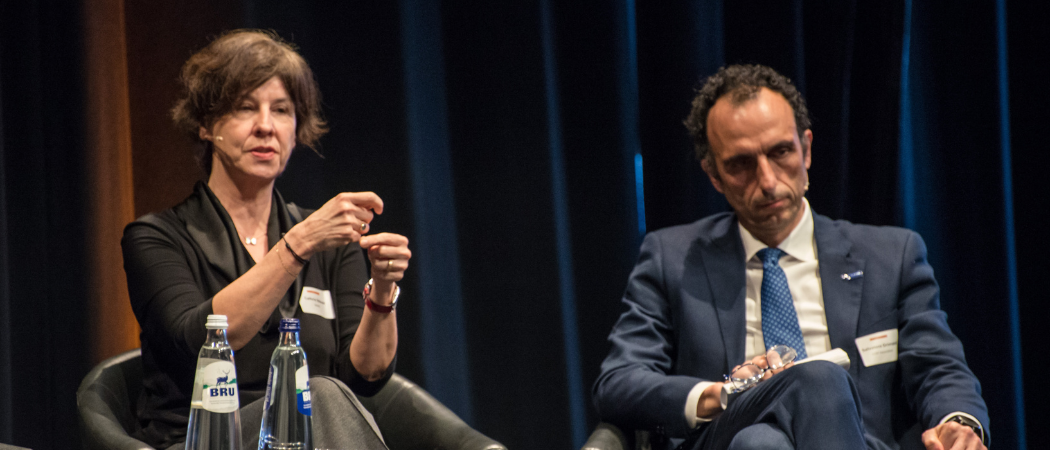The GÉANT network, which runs a global data infrastructure, says it needs more resilience and redundancy

Cathrin Stöver, chief communications officer at GÉANT (left) and Salvatore Grimaldi, president of the COST Association (right). Photo credits: Jeroen Vanhecke
Undersea cable-cutting attacks have prompted countries to double up the connections they use to exchange research data, according to GÉANT, which builds and operates cable networks across Europe.
In November, two telecommunications cables were cut in the Baltic Sea, with the German and Finnish governments suspecting sabotage. An electricity cable between Finland and Estonia was also severed in December last year.
These possible attacks, in which some suspect Russian involvement, have rattled the organisations responsible for research data flows.
Nordic countries are now so reliant on submarine cable systems that they aim to have triple links between each country, said Cathrin Stöver, GÉANT’s chief communications officer.
“This is absolutely necessary now for resilience,” she told delegates to the Science|Business annual conference in Brussels on February 6.
GÉANT plans and builds cable connections between European national research networks, and has multiple cables in the Baltic Sea and Mediterranean. Its network carries around 7 million gigabytes of data a day.
Heavily funded by the European Union, it also strikes deals with network organisations on other continents to make sure there is cable capacity for research data to flow around the globe.
“One of the approaches that's become absolutely necessary for us is to figure out, together with our partners, what the resiliencies and the redundancies are in these cable systems,” Stöver said. “How many cable systems do I actually need per ocean to be absolutely redundant?”
This resilience comes at a cost, she stressed. “And that cost needs to be [. . .] handled by somebody,” she said. “Let's not forget the underlying infrastructure.”
Trump 2.0
Stöver was speaking as part of a panel debate on the impact of geopolitics on research, a conversation dominated by the first three weeks of Donald Trump’s new administration in the US.
Robert-Jan Smits, president of the executive board at the Eindhoven University of Technology, pointed to the turmoil Trump’s executive orders had created in US science agencies during the first few weeks.
The orders, targeting diversity and inclusion initiatives, have prompted the National Science Foundation to vet existing research projects for words such as “diversity” and “women”, reported Science, with more than a thousand grants now being more closely scrutinised.
Meanwhile, the US Centers for Disease Control and Prevention has told its researchers to withdraw papers under review that contain words such as “gender” or “transgender”, reported Nature. This appears to be a response to a Trump executive order on “restoring biological truth to the federal government.”
It is already clear that US funding agencies are being “put in their place” by the new Trump administration, said Smits. This could hit international collaboration, he added, but also presents an opportunity for Europe to poach US-based scientists.
“I made an appeal to all American scientists known to be in the field [of semiconductors]: come to Europe,” said Smits, whose university is deeply involved in this area of research.
“Here, we work according to certain values. We have academic freedom, and we have funding as well to make things happen,” he said.





 A unique international forum for public research organisations and companies to connect their external engagement with strategic interests around their R&D system.
A unique international forum for public research organisations and companies to connect their external engagement with strategic interests around their R&D system.